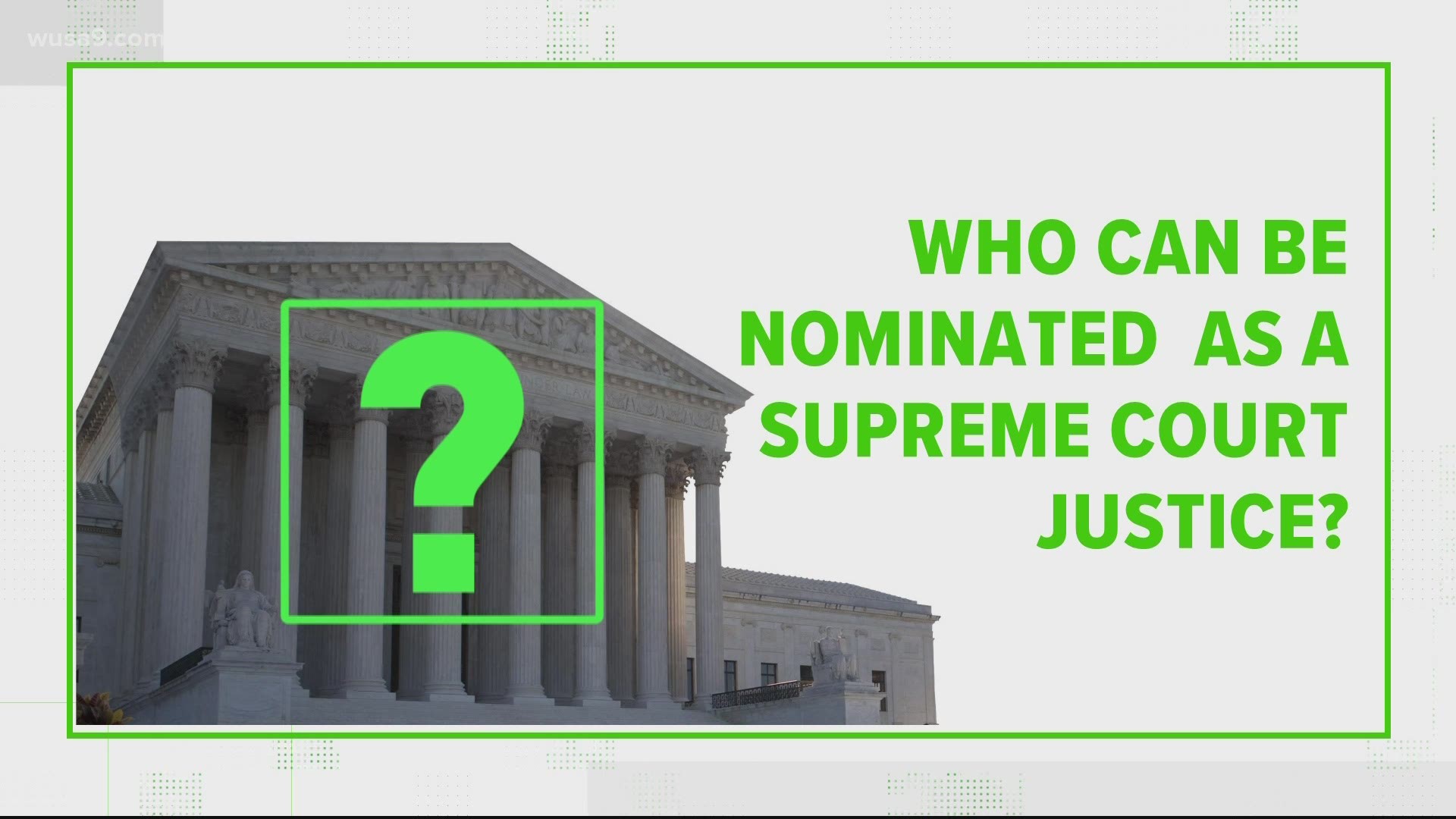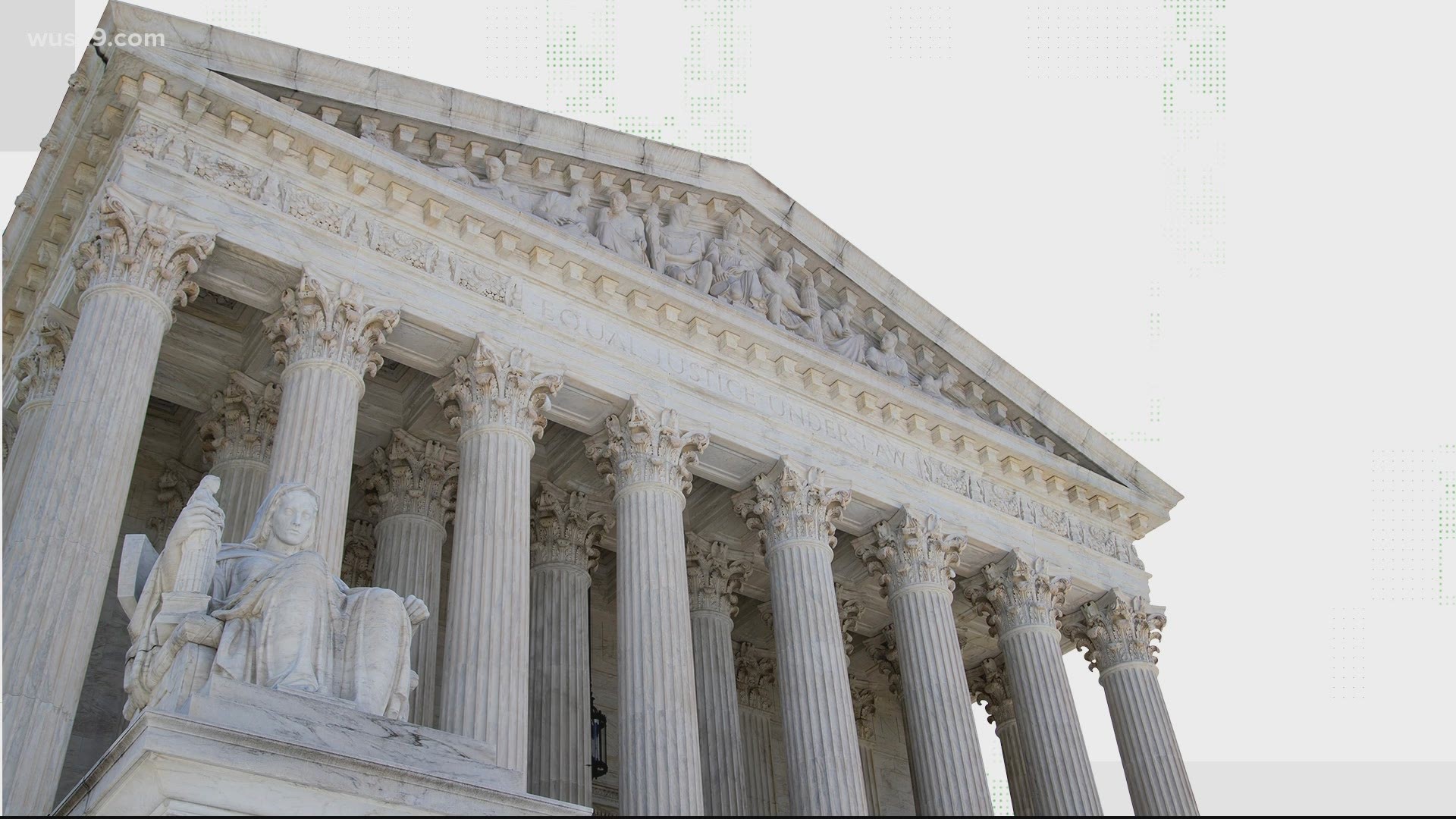WASHINGTON — President Trump intends to nominate Amy Coney Barrett to fill Ruth Bader Ginsburg's Supreme Court seat. The nomination process has sparked some questions, and the Verify team exists to get those answers.
QUESTION:
Who is eligible to be nominated to the Supreme Court? Are there any restrictions?
ANSWER:
There is essentially only one restriction: A person impeached and convicted by Congress in a verdict that bars you from federal office.
SOURCES:
Laurence Tribe, Professor of Law at Harvard Law School
Robert Peck, Constitutional Attorney
John Fortier, Director of Governmental Studies at the Bipartisan Policy Center
Supreme Court of the United States Frequently Asked Questions page
PROCESS:
Questions about the Supreme Court nomination process have started popping up online since the passing of Justice Ruth Bader Ginsburg. We took this question to the experts: What are the qualifications for becoming a Supreme Court Justice?
"The Constitution itself imposes no qualifications on a prospective Supreme Court appointee," Attorney Robert Peck told the Verify team in an email. "For example, there is no requirement that a nominee even has to be a lawyer. When Gerald Ford was president, there was a brief discussion about the possibility of appointing a leading constitutional historian."
RELATED: VERIFY: Who is Amy Coney Barrett? Breaking down past rulings from the expected Supreme Court nominee
The Frequently Asked Questions page on the Supreme Court's own website reads:
"The Constitution does not specify qualifications for Justices such as age, education, profession, or native-born citizenship. A Justice does not have to be a lawyer or a law school graduate, but all Justices have been trained in the law."
Our experts told us there is essentially one restriction that bars someone from being nominated to the Supreme Court — impeachment.
Law Professor Laurence Tribe told us in an email that someone who is impeached and convicted by Congress in a verdict that bars that person from holding federal office in the future cannot be nominated to the Supreme Court.
Peck echoed that, telling us that it's generally understood that disqualification from holding federal office extends to the highest court in the land. Our experts tell us this kind of verdict is rare.
John Fortier offered an interesting fact that a sitting congressman, Florida Representative Alcee Hastings was impeached by Congress in 1989 and was removed from his position as a U.S. District Judge.
Because his verdict did not include that key disqualification, Hastings ran for the House of Representatives and has served Florida's 20 Congressional District since 1992.
Peck points out that some experts believe that a disqualifying verdict doesn't truly apply to a Supreme Court nominee.
"It is thought that no president would name and no senate would confirm someone with that record," Peck told us. "And that is enough of protection against someone otherwise disqualified."


